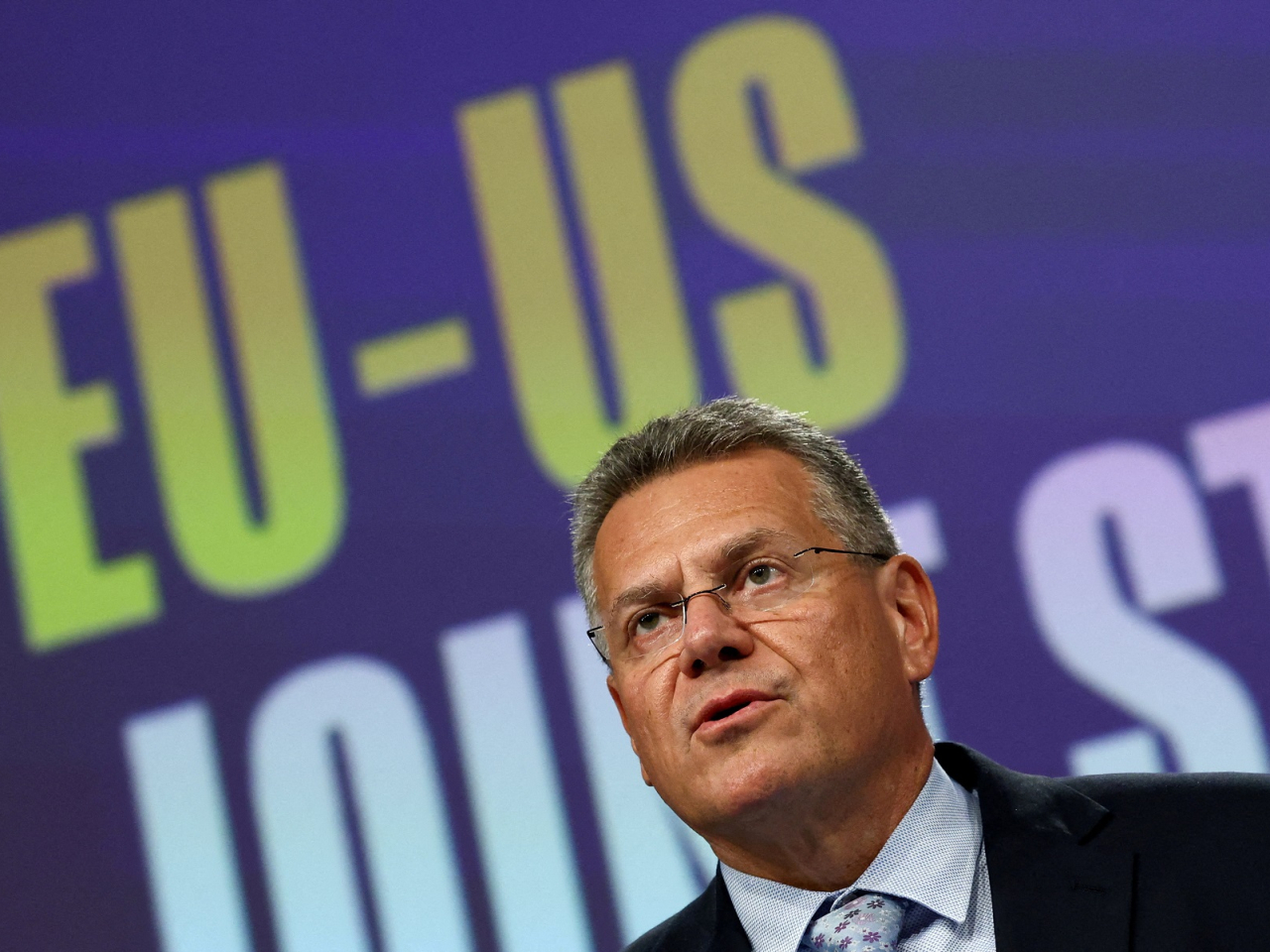The US and EU released details of a trade deal on Thursday that foresees lower car tariffs but no relief for Europe's wine sector, but Brussels said it would push for further concessions.
US President Donald Trump and EU Commission President Ursula von der Leyen clinched a framework accord in July for most EU exports to face a 15-percent US levy.
But many aspects remained unclear, as the EU sought to win carve-outs for some sectors and Trump threatened higher tariffs on others.
A joint statement on Thursday brought some clarity, although negotiations are not over and some moving parts remain.
The "maximum, all-inclusive" 15-percent rate would apply to the vast majority of European exports, including cars, pharmaceuticals, semiconductors and lumber, the EU said.
"This is the most favourable trade deal the US has extended to any partner," EU trade commissioner Maros Sefcovic told journalists in Brussels, explaining the levy will not come on top of existing tariffs.
In recent weeks Trump had raised the possibility of additional tariffs hitting certain sectors such as pharmaceuticals, which account for 20 percent of the EU's exports to the United States, and semiconductors.
Sefcovic said he was confident that the rate for cars, which is lower than the current 27.5 percent, will apply retroactively from August 1, having received assurances on the matter from his US counterpart.
But this will happen only once the EU introduces legislation to eliminate its own tariffs on US industrial products, something Sefcovic said the commission was "working very hard" on.
Welcoming the clarity provided by the joint statement, Sigrid de Vries, director of European auto lobby ACEA, urged the commission to implement its part of the deal "without delay, mitigating the tariff impact which already has cost automakers millions of euros in duties every day."
The 15-percent rate will also apply to wine and spirits despite a push by France, Italy and other wine-making countries to win a zero tariff exemption.
"Unfortunately, here we didn't succeed," Sefcovic said, adding negotiations would continue, but did not want to give "false promises".
"These doors are not closed forever," he said.
The French wine exporters federation said it was "hugely disappointed".
France exports 25 percent of its wines and spirits to the United States and Agriculture Minister Annie Genevard said "the situation cannot remain unresolved".
In a post on X, she called the agreement "unbalanced" and said European negotiators needed to make the issue a priority as a matter of urgency. She also expected "strong European measures to support producers".
French trade minister Laurent Saint-Martin said his government would seek "additional exemptions" in the trade deal.
The office of Italian Prime Minister Giorgia Meloni said the agreement was "not yet an ideal or final point" but a "trade war" had been avoided.
Under the agreement, the EU committed to significantly improving market access to a range of US seafood and agricultural goods, including tree nuts, dairy products, fruits, vegetables, pork and bison meat.
On the other hand, a special more favourable regime will apply as of September 1 to a number of EU exports to the US including "unavailable natural resources" such as cork, all aircraft and aircraft parts and generic pharmaceuticals.
These would effectively face a "zero or close to zero" rate, the commission said. (AFP)





